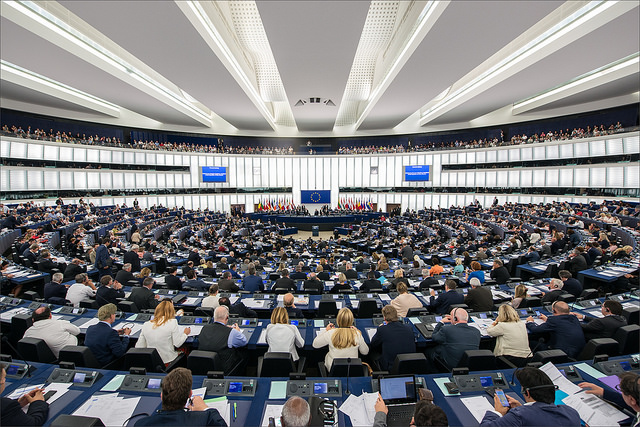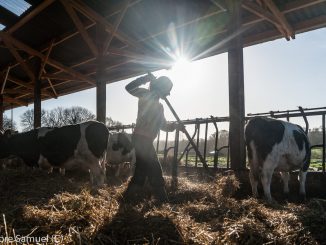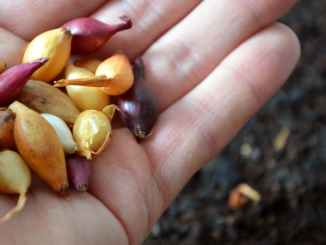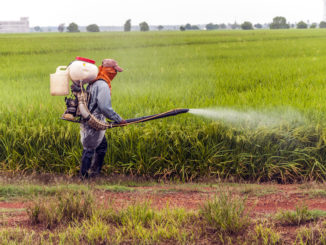Fertilizer, herbicide and GM crops. 24th October 2017 saw not one but three significant votes in the European Parliament on each of these topics. Considering how these plenary votes went, it may be the case that, when it comes to agri-food policy matters, the tide is turning. While final decisions are yet to be made, nevertheless, the signals are clear: a majority of MEPs, the representatives of European Citizens, have expressed major concerns with core aspects of conventional farming and food. This makes 24th October something of a watershed day.

Fertilizer
For fertilizer, MEPs voted to reduce cadmium levels and to encourage circular economy alternatives to how mineral fertilizer is made presently. By 343 votes to 252, with 59 abstentions, MEPs voted to decrease cadmium limits from 60 mg/kg to 40 mg/kg after six years, further reducing them to 20 mg/kg after sixteen years. While this is a longer adjustment timeframe than the Commission had proposed, nevertheless, this represents a long overdue statement that European citizens will no longer accept the ongoing health and environmental implications of cadmium. (see report and voting information here)
Interestingly, this vote was also about providing alternatives. The draft new rules will encourage reuse of materials to reduce dependence on imported phosphate. The EU imports more than 6 million tonnes of phosphate rock a year, but it could recover up to 2 million tonnes of phosphorus from existing sources.
While there will need to be close scrutiny of these reused materials – which may include sewage sludge and meat and bone meal – a move away from energy intensive mineral fertilizers with toxic cadmium levels represents a step in the right direction.
ARC2020 have focused on cadmium for some time. See our article on Ital-Ital from this year and an open letter we signed from 2014)
Glyphoste
The glyphosate vote was perhaps the most high profile of the three. (See motion and voting information here). The parliament backed immediate restrictions on the use of the substance and a full ban on glyphosate-based herbicides by December 2022. This non-binding vote – 355 votes to 204, with 111 abstentions – means that MEPs reject the Commission’s proposal for a ten year renewal of the herbicide licence. A household ban, public use ban and a non-essential farming ban – when biological alternatives exist – should be introduced immediately, MEPs said.
MEPs also drew attention to the so-called “Monsanto Papers”, internal documents from the company which, MEPs said, “shed doubt on the credibility of some studies used in the EU evaluation on glyphosate safety”. They also emphasised that “the EU’s authorisation procedure, including the scientific evaluation of substances, should be based only on published, peer-reviewed and independent studies commissioned by competent public authorities”. EU agencies should be strengthened “in order to allow them to work in this way.”
Experts from EU countries met the following day but failed to make a decision on the Commission’s proposal. It appears ten countries voted against renewal, while 16 voted for renewal, with two abstaining. It’s interesting to note that big agricultural powers like Italy and France voted against renewal, while the UK – which voted for renewal – is in the process of leaving the EU. (full list below).
Greenpeace report that this is the fifth time this renewal has been rejected since the Commission attempted in early 2016 to license its renewal. Glyphosate’s license expires in 2017, so some decision will have to be made in November or December. A shorter renewal time period may be proposed, with three, five and seven years being suggested.
This summary report of the Standing Committee on Plants, Animals, Food and Feed explores these options with Member States.
Genetically Modified Soy, Oilseed Rape and Maize
Finally, and also on 24th October, MEPs rejected authorisation of genetically modified soy, oilseed rape and maize.
The objections were made on the basis that MEPs claim the Commission is exceeding its implementing powers. MEPs claimed that due scrutiny is not being adhered to, while they also expressed concerns about the lack of impact assessments on public health and the environment. Aspects of the European Food Safety Authority (EFSA) risk assessment was described as “insufficient” “inappropriate” and “not adequate”.
Referring to these rejections, GUE/NGL MEP Lynn Boylan expressed frustration at the fact that the Parliament must repeatedly object to the authorisation procedure.
“It is beyond frustrating to have a situation whereby President Juncker admits that the procedure is undemocratic but yet his Commission fails to bring forward a credible alternative. Instead they continue to pursue the same route over and over again.”
She also complained of how these GM crops “allow wide and intensive use of non-selective herbicides and pesticides”. She added “herbicide resistant GM crops are not the solution, they are destroying biodiversity while creating herbicide resistant ‘superweeds’. That is not the future we want for our precious environmental resources,” she concluded.
One of these votes may have attracted attention anyway, but three on the one day? Given these industrial-corporate farming rebuffs, in fertilizers, herbicides and GM crops, on the noteworthy date of 24th October 2017, it is long past time for more significant investment in agroecological alternatives to be supported.
All ARC2020 articles on agroecology
All ARC2020 articles on pesticides
In the glyphosate renewal vote, 16 countries – Bulgaria, Cyprus, Czech Republic, Denmark, Estonia, Finland, Hungary, Ireland, Latvia, Lithuania, the Netherlands, Poland, Romania, Slovakia, Spain, and the U.K. – voted in favour of renewal. Austria, Belgium, Croatia, France, Greece, Italy, Luxembourg, Malta, Slovenia and Sweden voted against renewal. Germany and Portugal abstained.




